
Blood Types — Stanford Blood Center
There are 4 different blood types. The most common blood type in the population is type O. The next most common is blood type A, then B, and the rarest is blood type AB. The blood type of the donor must be compatible with the recipient. The rules for blood type in transplantation are the same as they are for blood transfusion. Some blood types.
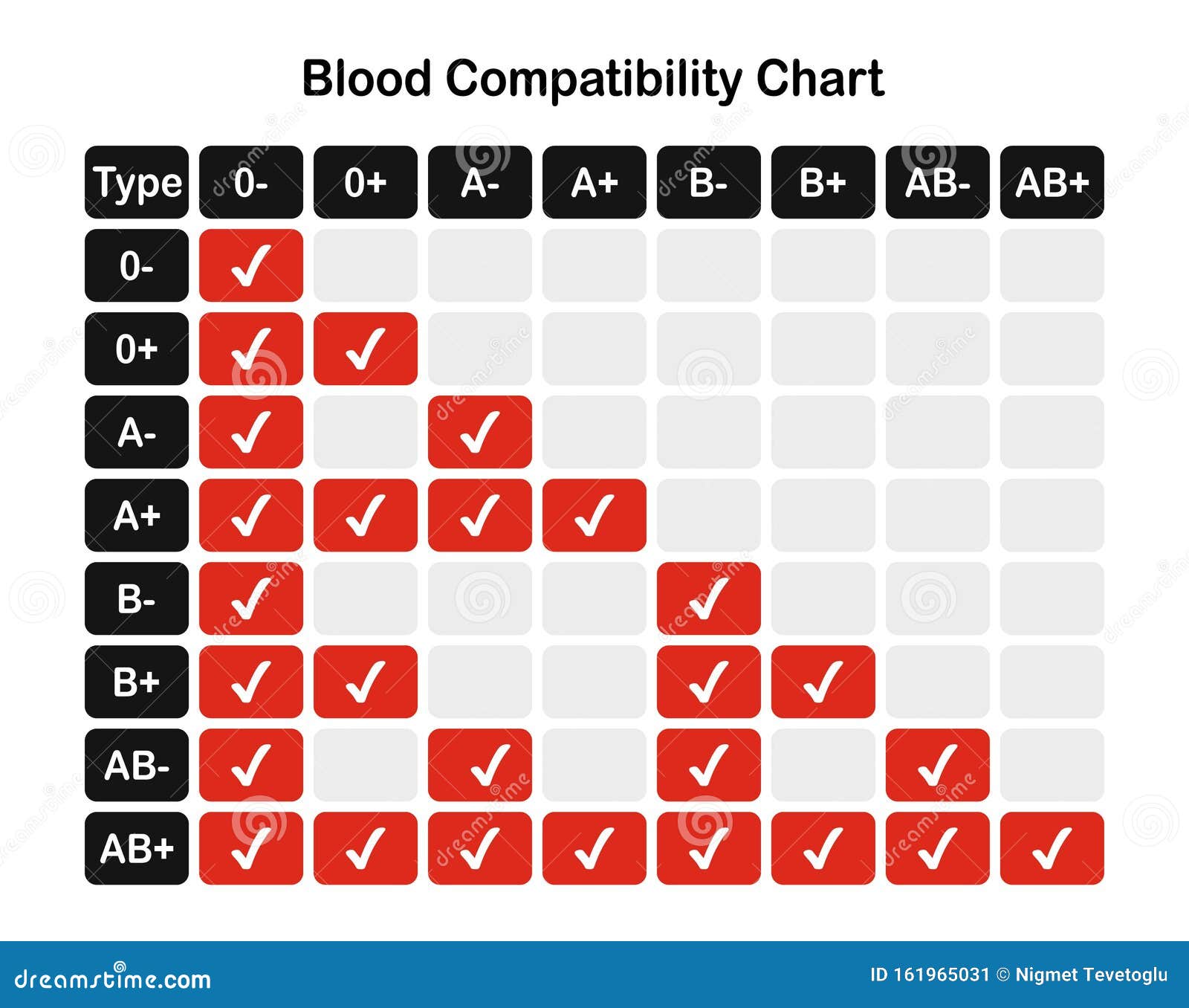
Blood Type Chart. Donor Blood Vector, Illustration Stock Vector Illustration of compatibility
Are they compatible? When a transfusion is given, it is preferable for patients to receive blood and plasma of the same ABO and RhD group. However if the required blood type is unavailable, a patient may be given a product of an alternative but compatible group as shown below.
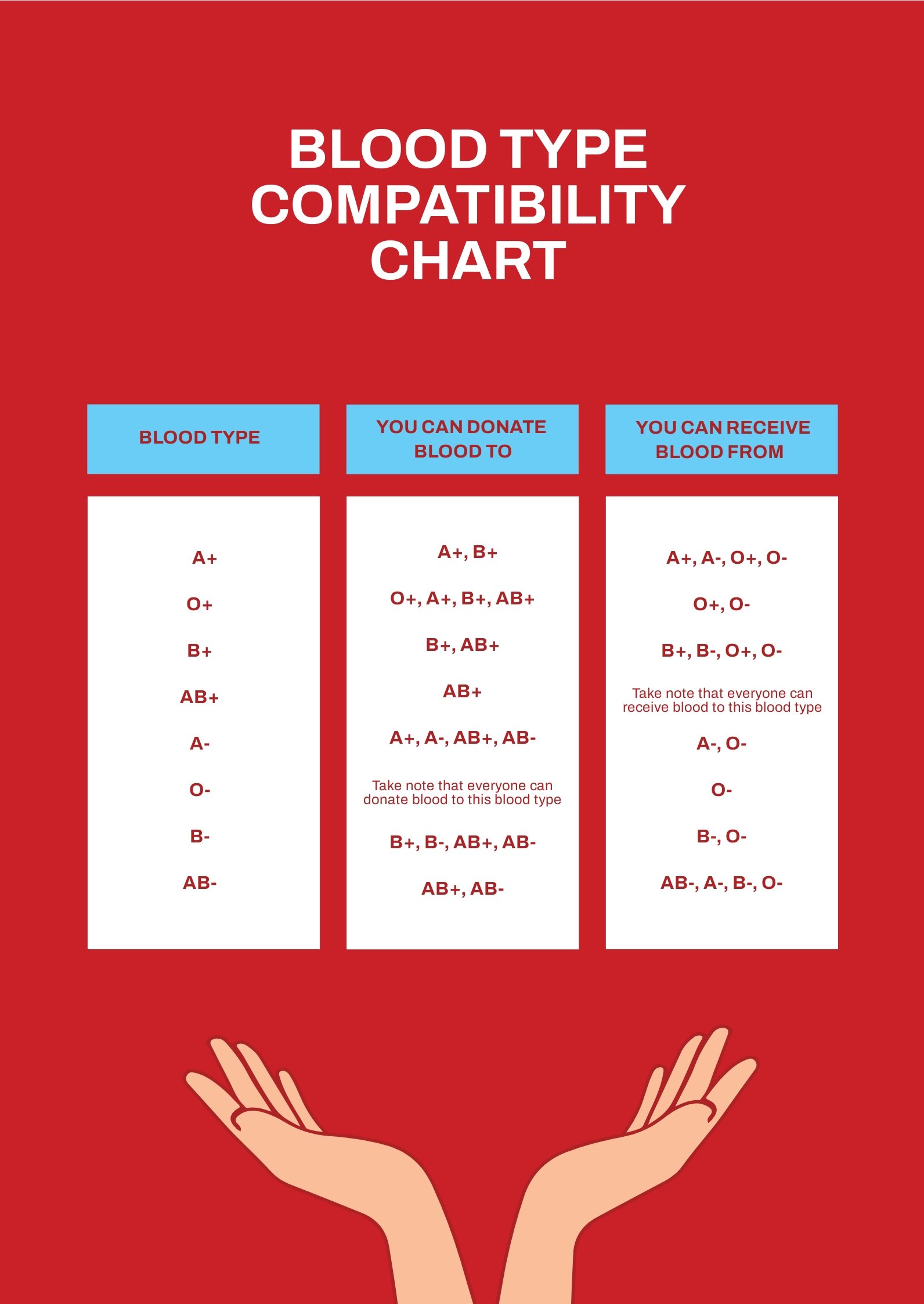
Blood Type And Compatibility Chart Poster ubicaciondepersonas.cdmx.gob.mx
Blood types are referred to as Type A, Type B, Type AB (which has both A and B antigens), or Type O (which has neither A or B antigens) followed by positive or negative, which indicates the presence of the RhD antigen. Persons who are RhD negative have no RhD antigen.

National Blood Donor Month Blood type compatibilities Compound Interest
Compatible Red Blood Cells (RBCs) Compatible Plasma; Group O: Group O: Group O, A, B, AB: Group A: Group A and O: Group A and AB: Group B: Group B and O: Group B, AB: Group AB: Group O, A, B, AB: Group AB: Platelet ABO Compatibility: While the same ABO as the patient is the first choice, any ABO type component may be used. Cryoprecipitate ABO.
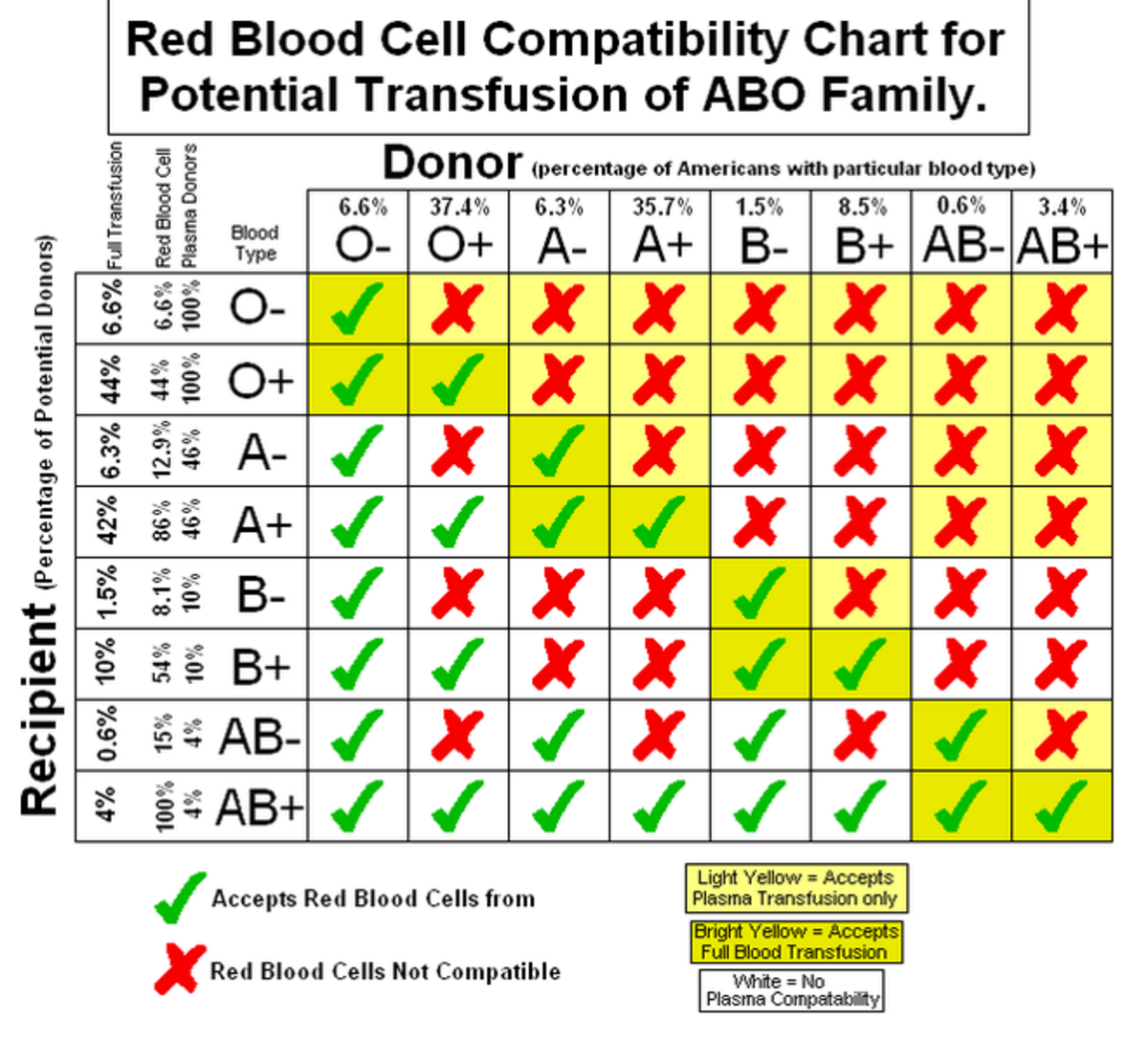
The Basics of Blood and Blood Typing Owlcation
The importance of properly matched blood types is critical when patients require blood. There are eight different common blood types, which are determined by the presence or absence of antigens A and B on the surface of the red blood cell.. Blood Type Compatibility . Group A - has only the A antigen on red cells (and B antibody in the.

Blood Donation What Food to Eat and How To Recover
A RED CELLS Group A has only the A antigen on red cells (and B antibody in the plasma) Blood Types and Transfusion There are very specific ways in which blood types must be matched for a safe transfusion. The right blood transfusion can mean the difference between life and death.

Blood Type Compatibility Chart Download Scientific Diagram
What Is a Blood Type Compatibility Chart? A blood type compatibility chart is a reference tool used in medical settings to determine which blood types are compatible with one another. This chart plays a pivotal role in ensuring the success of blood transfusions, as the compatibility between the donor's blood type and the recipient's blood type directly affects the safety and efficacy of the.
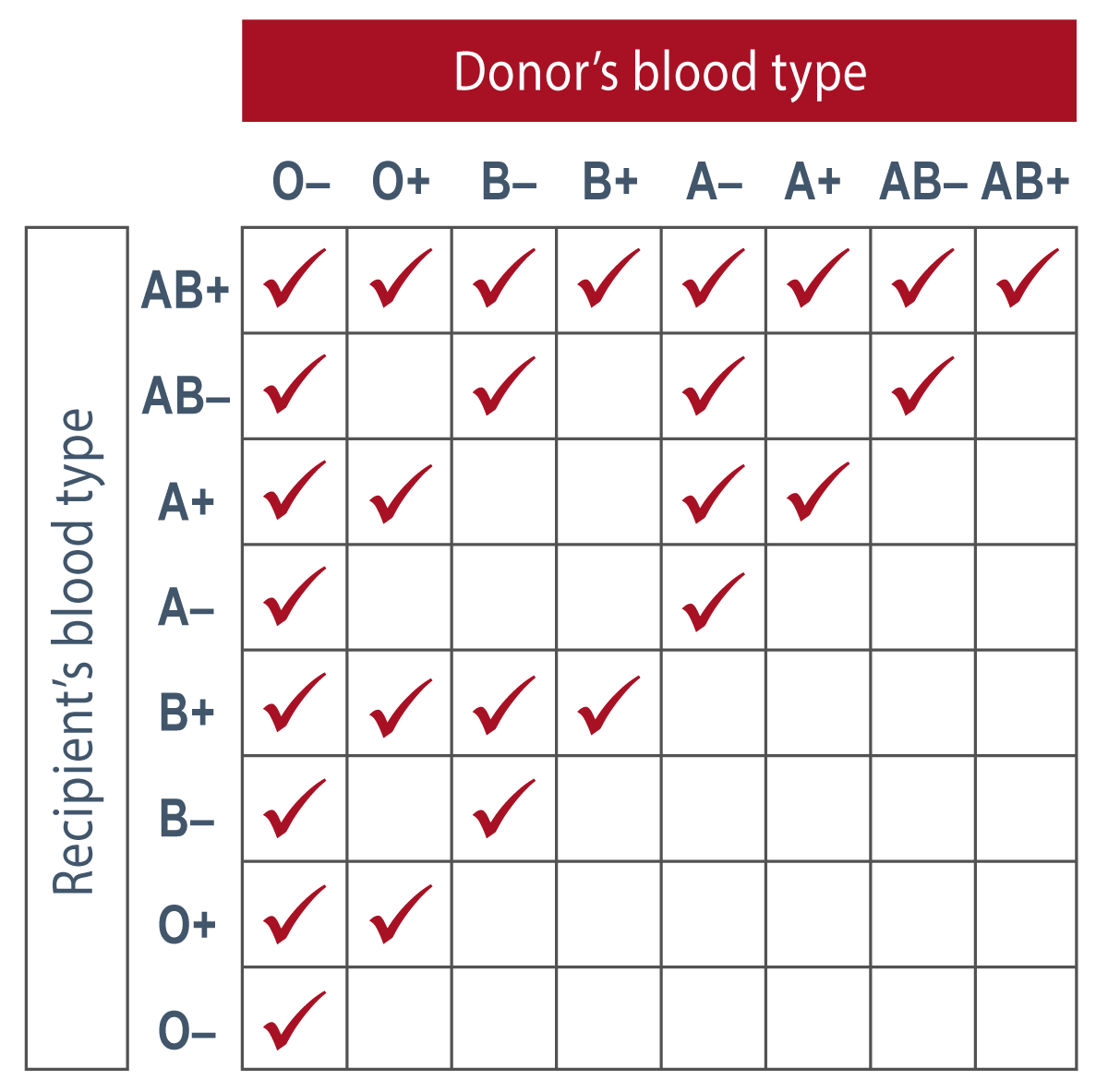
Introduction to Blood Types
How Many Blood Types Are There? The ABO system has four major blood types: A, B, AB, and O. Blood types are further categorized by the presence (positive or +) or absence (negative or -) of the Rh (D) antigen on the surface of their red blood cells, also known as the Rh factor. This produces the eight major blood types. A and B antigens are sugars.

Blood Product Transfusion ABO Compatibility Table RK.MD
Under the ABO Blood typing (grouping) scheme, there are two especially important antigens called A and B. Every living human has either one or both or neither of the red Blood cells. An individual with Blood group A is so because he has antigen A. Antigen B makes a person's Blood group B. If a person has both antigens, then they are in group AB.
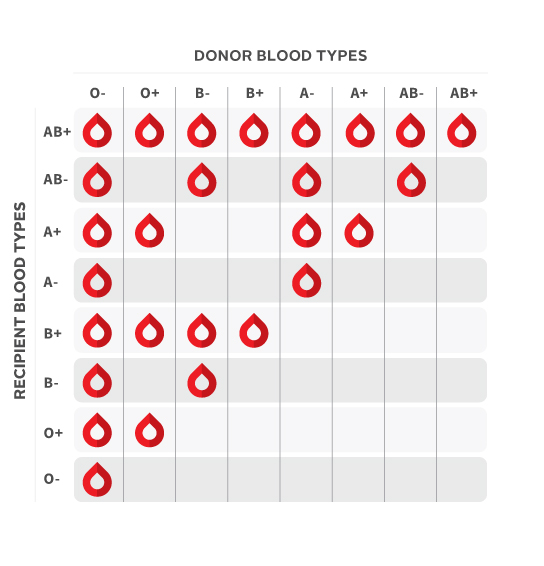
Which blood types are compatible with each other Blood type compatibility
There are four main blood types: A, B, AB and O. Combinations of proteins and sugars, called antigens, on the surface of red blood cells are what make the blood type either compatible or incompatible with other blood types. For example, if you have type A blood, you can only receive type A or type O blood.
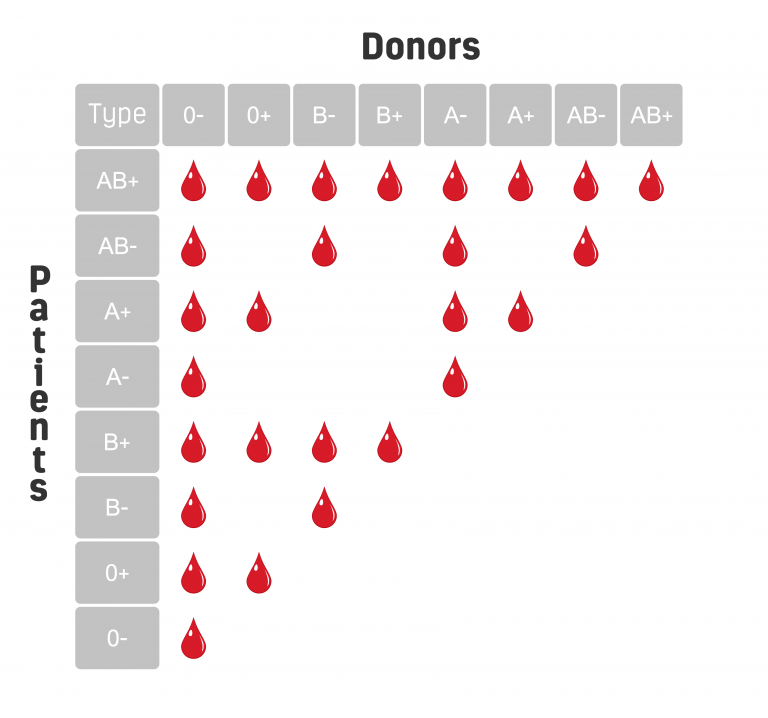
Why do people have different blood types? House Call Doctor
Whether your blood group is type A, B, AB or O is based on the blood types of your mother or father. Blood Type Compatibility. If you have type AB blood, you have both A and B antigens. This means you're a universal recipient and you can receive any type of blood. However, you can only donate blood to other people who have type AB blood.
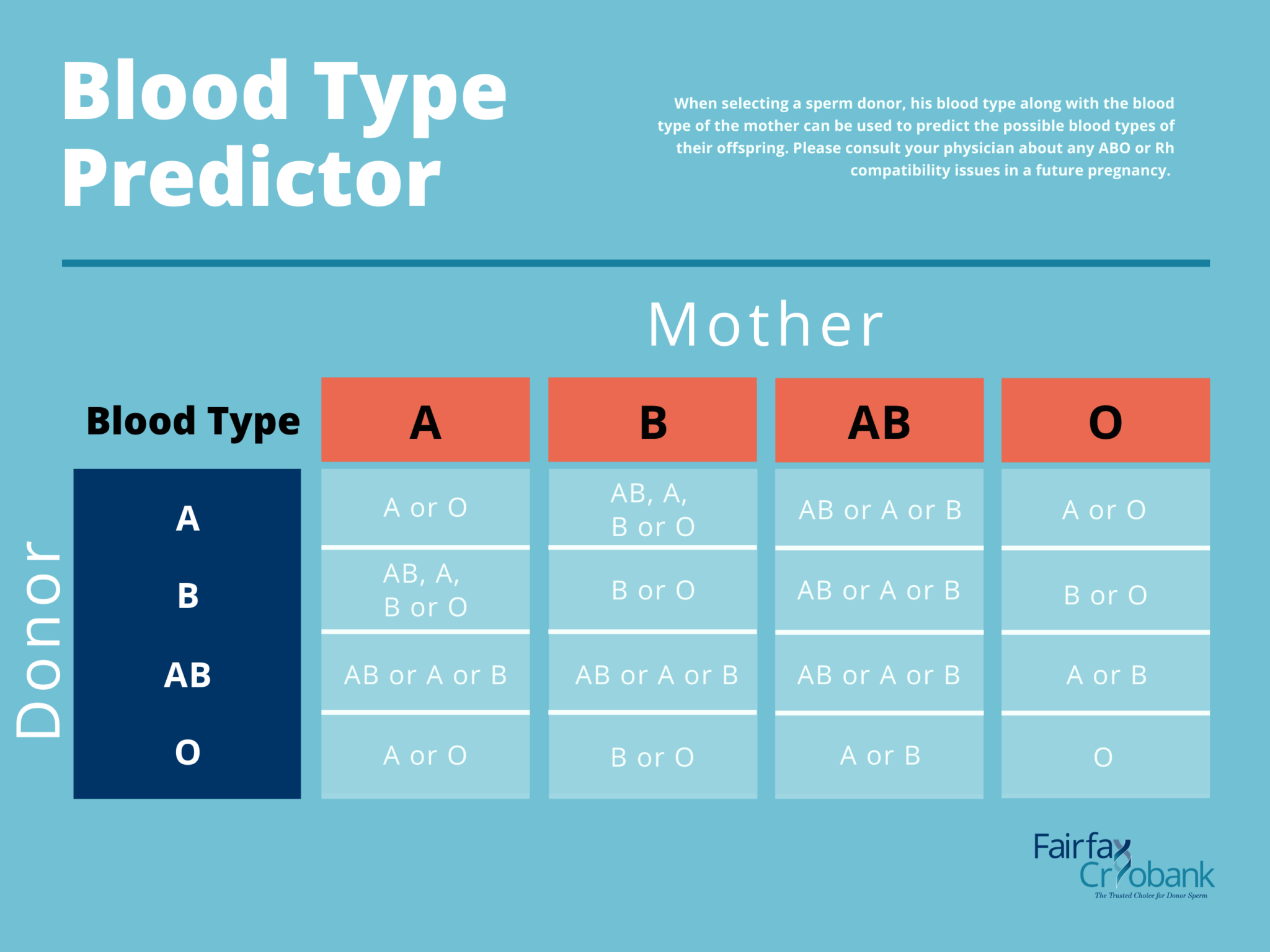
Blood Type Compatibility Predictor Fairfax Cryobank Sperm Bank
Type O+ Type O- Blood types must be matched correctly so you don't have a reaction to the transfusion, which can be deadly. For quick reference, here's that easy-peasy blood type compatibility chart we promised you, which shows which blood types can be safely transfused with one another:

Blood Compatibility Chart Why Is Blood Compatibility Important?
This chart will help to answer those exact questions. Choose Your Blood Type** O+ O- A+ A- B+ B- AB+ AB- O+ Best Donation Types: whole blood, double red, platelet % of Population with This Blood Type 39% You Can Give Blood To. O+ A+ B+ AB+ You Can Receive Blood From. O+ O- **Don't know your blood type? No problem!

What Is A Blood Type Chart? Free Sample, Example & Format Templates
Blood type Blood type (or blood group) is determined, in part, by the ABO blood group antigens present on red blood cells. A blood type (also known as a blood group) is a classification of blood, based on the presence and absence of antibodies and inherited antigenic substances on the surface of red blood cells (RBCs).
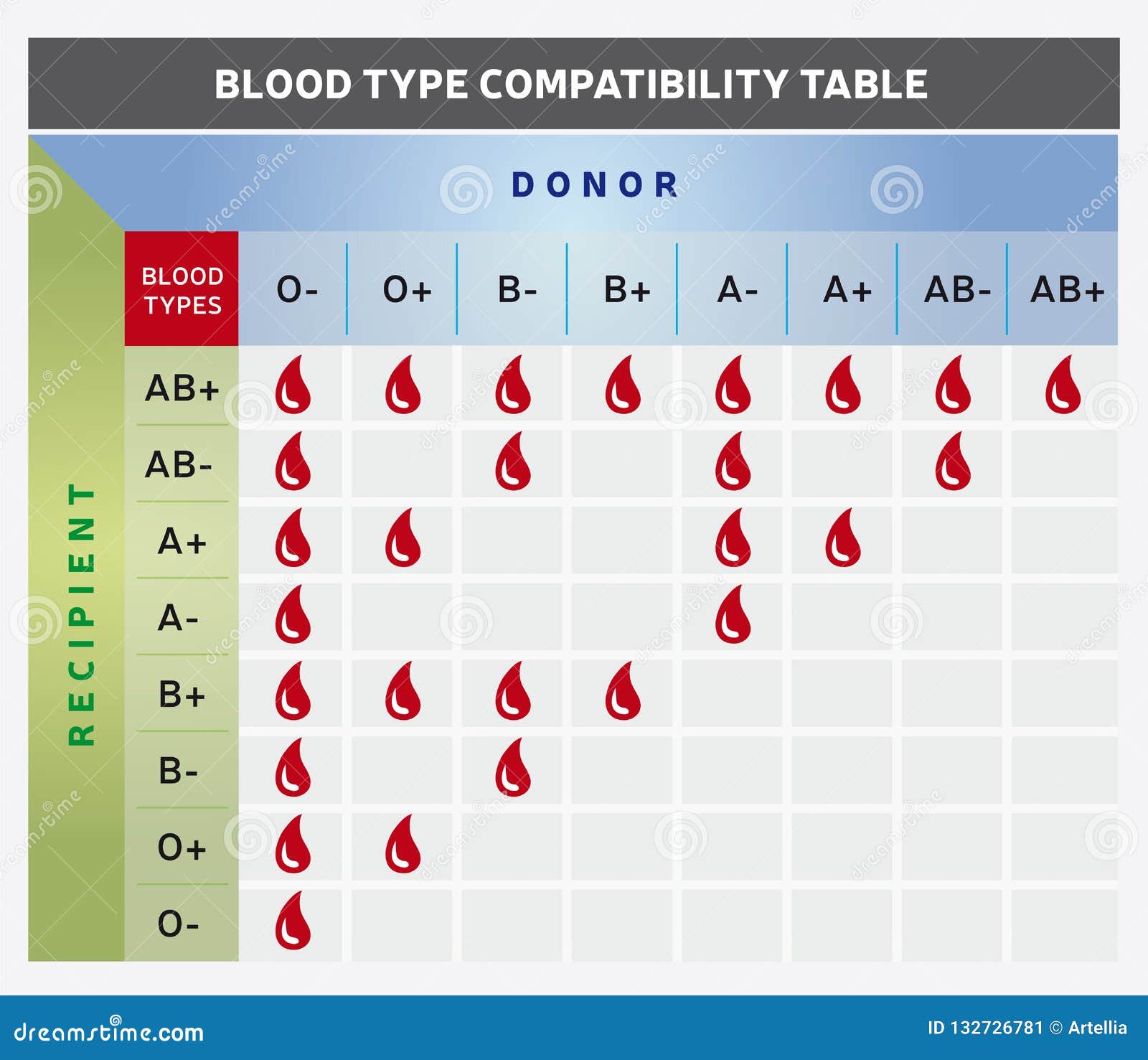
Blood Type Compatibility Table / Chart with Donor and Recipient Groups Stock Vector
Blood Types: Compatibility Chart, Rh Factor & Donating. Blood types are classified according to the presence or absence of antigens and antibodies present on the surface of red blood cells. According to the ABO blood classification system, blood can be classified into A, B, AB and O. Blood type can be further classified according to the.

Blood Type Exchange Chart Blood Type Relation
A blood type is a classification system that allows healthcare providers to determine whether your blood is compatible or incompatible with someone else's blood. There are four main blood types: A, B, AB and O. Blood bank specialists determine your blood type based on whether you have antigen A or B on your red blood cells.